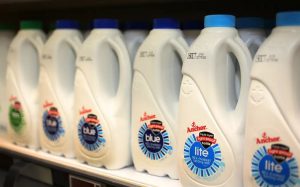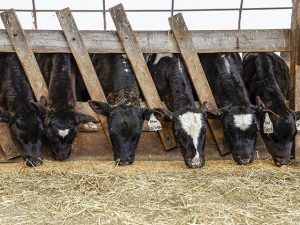
At Crave Brothers Farm in Waterloo, more than 2,000 cows are to fuel the cheese factory, the farm, and more than 300 homes within the area.
If you let him, George Crave will go on and on about his cheese.
“I eat cheese almost every day… the soft cheeses, the grated cheeses,” he said.
As the President of Crave Brothers Farmstead Cheese, Crave takes pride in his family-run farm and its sustainability efforts.
“Our farms are unique because we farm the land, but then we also bring everything in to feed the cows,” Crave said. “But what ends up at the end of the day is the waste from the cows and the cheese factory goes into a methane digester.”
Methane is a potent greenhouse gas that accelerates climate change.
Cows release methane through manure and when they burp. To mitigate the dangers to the environment, Crave Brothers Farm is part of a growing movement of dairy farmers across the country using a manure digester system.
In a nutshell, the digestor captures the methane and turns the manure into an environmentally friendly power.
“So we’re really producing electricity or generating electricity off of renewable fuel,” he said. “We’re not using gasoline, we’re not using diesel, we’re not using imported petroleum. We’re using methane from our own waste for our cars and our cheese factory to generate electricity for our local community.”
Crave said his cows produce about 50 to 150 pounds of milk a day. Much of that milk is turned into a tasty treat, that Crave will go on and on about if you let him.
“In the summertime, you can have a little cheese, a little balsamic, a little wine, tomatoes,” he said. “Get it? You can say it over and over again.”

























